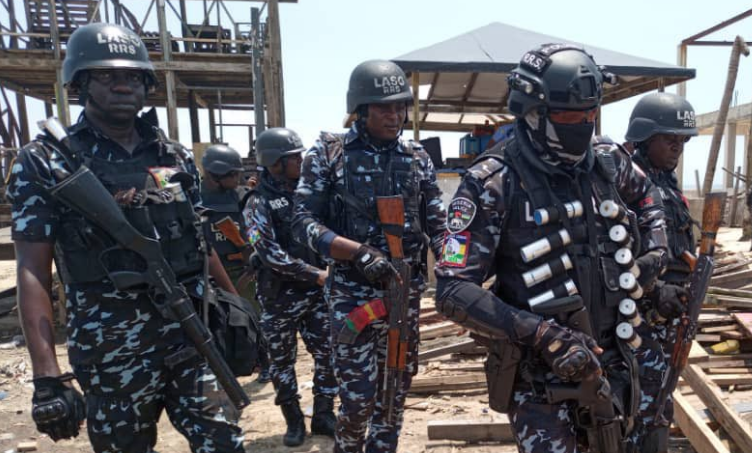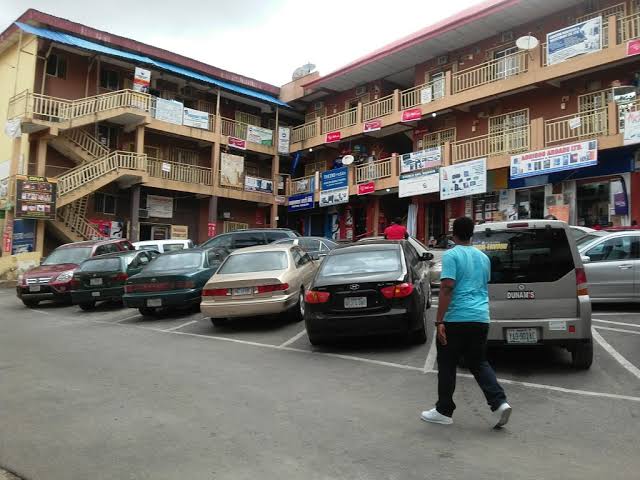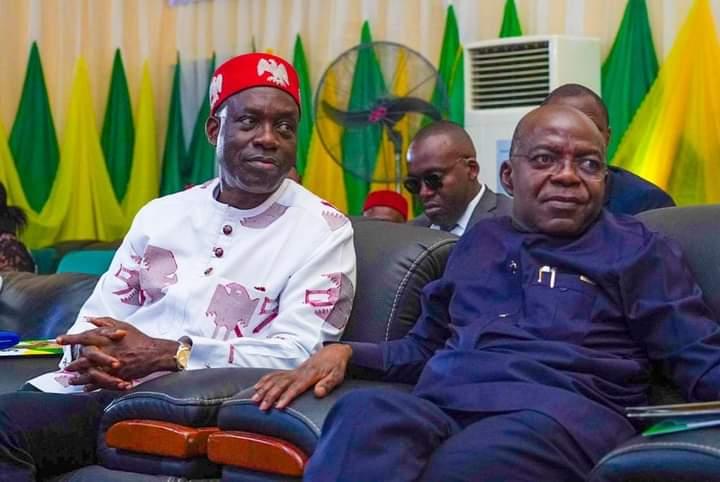The debate over whether Nigeria should go fully federal in the area of internal policing, or not, has been on for some decades now. No thanks to the deteriorating security situation in the country, over the past two decades or thereabouts. The debate is polarised along the lines of pro, and anti “State Police”. While some believe there is a need for the power to (internally) police Nigeria to be devolved from the federal to state, and then local government. That would be in line with the principle of federalism, others argue that the country is not yet ripe for such an adventure in matters of statecraft. That is, police should remain an exclusive item in our federalism.
Federalism, which is a constitutional arrangement divides constitutional powers into the exclusive, the concurrent, and the residual lists, and then, distributed among the (three) tiers of government representing the federating units — Central, State, and Local governments (in the Nigerian context). The “Exclusive list” are those items in the constitution over which only the central (federal) government has the prerogative to legislate, exclusive of subnational governments. In the “Concurrent list” are those items over which both the central and the regional government have powers to legislate. Then, the “Residual list” are the ones that only State and Local Governments have constitutional power to legislate on.
So, policing is one of those items on the exclusive list. The argument whether police should be moved to the concurrent list stemmed from the need to solve the problems created by the hydra-headed security challenges that the country has had to grapple with over the last couple of decades. The argument, by those in support, is anchored around the facts that, first; the unitary chain of command, common with military and paramilitary establishments will make it impossible for quick decision-making in a situation of emergency. Secondly, it is believed that someone who was born and raised in an environment would have a more in-depth understanding of the environment, and the terrain, than a total stranger, which better equips him to tackle security challenges. That is, local solutions and responses to local problems.
On the other side of the fence are those who believe that, Nigeria is not yet ripe for State Police, citing the very likely possibility of the state Governors abusing it. Yes, Nigerian politicians have that tendency to deploy the state’s instrument of coercion into oppressing (local) political opponents. Then the issue of funding was also raised by those who are of the view that Nigeria is not buoyant enough to run State Police, especially now that the country is fiscally challenged. Another very germane point is also that, there could be jurisdictional clash between the federal police and those of the various states. That is also true because, we’ve witnessed stater security agencies who both belong to the federal government, engage one another in a gun duel, or show of power, not to talk of when they’re owned by different governments. This would be so, especially when the ruling party at the centre is different from the one at the State. Remember CP Joseph Mbu versus the then Rivers State Governor, Rotimi Amaechi? Okay!
Advertisement
Taking a dispassionate look at the two schools of thought, within the context of Nigeria, one would realise that they both have valid arguments. But we, as a nation, are now faced with the option of choosing between, doing things the way we’ve been doing it, getting the same result, and trying something new, and hoping to getting a better result than what we are battling with at the moment; and, the result could be worse. But we can’t continue to do things the same way, and expect different results. In a nutshell, we are to choose between the devil and the deep blue sea. We have to decide between having to endure constant harassment of the citizenry by men of the underworld (terrorists, kidnappers, and bandits), and the fear of political opposition being victimised by the incumbent. So, to me, it is a choice between the bad and the less bad, and of course, we would have to choose the less bad. But determining which one is the bad, and the less bad, depends on who is looking at what. To say it in much clearer, and unequivocal terms, I belong to the first school of thought. So, if I am to choose, I will go for having a state police that would better deal with criminals, and victimise political opponents, than having one (centralised) that is beyond the manipulation of state Governors, but unable to burst crime, due to administrative bottleneck.
We must, at this juncture, endeavour to try a new thing, by embracing State Police. Since we’re not going to be locked in on it, if we experiment, and it turns out to be worse than the previous centralised arrangement, then we revert to the previous architecture. It is not as though we would be condemned to living with it. It is my belief that if there is a control mechanism that prevents, or minimises the abuse of State’s Judiciary by the Governors, or if we could put up with the way and manner the State legislatures run without having jurisdictional clash with their federal counterparts, something similar can be replicated in the administration and operations of state police. Talking about funding, if we embrace state police, the Federal government is not going to continue to hold on to the current size of the Police Force. So, its current share of the revenue from the federation’s account will have to be reduced in line with its reduced policing responsibilities, as well as the size of the personnel. What I am saying is that, there would be a review of the revenue allocation formula in accordance with the load-shedding by the federal government.
Fortunately at last, maybe, due to our not-so-palatable recent experiences with insecurity, we (of the both camps) seem to be inching closer to being on the same page, that is, if we already are not. There seems to have been a consensus on the need to devolve power of policing, from the federal to the state, and perhaps, the local government. This was the impression I had, when I read it in the news that the speakers of the 36 State Houses of Assembly in Nigeria, following their meeting, last week Thursday, have resolved to support the efforts of the National Assembly in amending the constitution to allow for the devolution of power to decentralise policing in Nigeria. The resolve of the Speakers, under the aegis of Conference of Speakers of State Legislatures of Nigeria, to support the project, was contained in a communique issued at the end of their meeting in Abuja. About three-and-a-half months ago, I wrote on this column, an article, entitled “Fellow Nigerians, let us welcome converts to state police advocacy”
Advertisement
Fellow Nigerians, let us welcome converts to state police advocacy
The addition of the 36 speakers clinched it for those of us who believe we should try something new, in our quest to tame the hydra-headed monster called insecurity.
That is progress. It is because, if one considers the fact that, even if the amendment manages to scrape through at the two chambers of the National Assembly, there is still the constitutional requirement of two-third (at least, 24) of the 36 State Houses of Assembly in the country to ratify it, before it can become a law. We’ve witnessed a good number of well-intentioned constitutional amendments by the National Assembly, that got frustrated as a result of not getting the needed “2/3 majority” ratification from the 36 State Houses of Assembly. But with this 100% support from the leadership of the State legislatures, those of us who believe that we should try out State Police, can rest assured that it is a done deal, barring any last minute political drama.
Advertisement
Now that the issue of State Police is almost a done deal, like an “Oliver Twist”, I can now ask, or hope, for the supports of the State legislatures to push through another vital issue that needs to be addressed through constitutional amendment — Local Government Autonomy. In defiance of the 1976 Local Government reform which recognises the local government as the third tier of government in our federal arrangement, the State Governors have swallowed the governments at the grassroots, figuratively speaking. They’ve rendered the local governments in the country effeminate, financially, and even politically. Funds accruing to the Local Governments from the Federation’s account are being religiously hijacked and diverted by the majority of the state Governors since 1999. That has emasculated the government, governance and by implication, development at the grassroots, except for a few States like Lagos, Rivers and maybe, Kaduna where the local governments are still allowed some breathing.
Some security experts have attributed the worsening security situation in the country, partly, to the non-existence of the local government, where we should have had a democratically elected Chairmen as the Chief Security Officers. The vacuum created by their absence is why local crimes fester and develop into interstate phenomena. Imagine the group of bandits, who at a point, took over the Abuja-Kaduna highway, were initially, local criminals in each of the local governments that straddle the highway, from Kaduna City, through local government areas in the southern part of the state, to the Federal Capital Territory (FCT). The same could be said about the Abuja-Keffi-Akwanga-Jos highway, Lokoja-Abaji-Kwali-Gwagwalada, and other inter-States roads in Nigeria. Their nefarious activities could have been nipped in the bud, were the local governments allowed to function like they had once been during the era of military rules.
The destruction of the local government system in Nigeria by State Governors for reasons that have to do with a desperate need for political preservation, and survival, created vacuums, not only in the area of security, but also in the area of provision of social amenities that are within the constitutional remits of the local government. For example, the newest culverts in my community – Ayetoro-Gbede, in Kogi State were “constituency projects” of councillors elected under the aegis of either the defunct National Republican Convention (NRC), or Social Democratic Party (SDP) in the botched 3rd Republic in the early 90s, when the local governments in Nigeria were last allowed to enjoy full autonomy. The unholy romance of the state Governors with local governments’ funds has led to the current state of non-existence of Trunk-C roads in most parts of the country. Amenities like public toilets, motor parks, are either non-existent, or poorly maintained, where they manage to exist.
Sometimes in September last year, a Local Government chairman in Ogun State, Wale Adedayo, accused the state Governor of hijacking and diverting, on a monthly basis, the local government allocations. He was, immediately, visited with the maximum power of the State’s instrument of coercion. Adebayo, who was the then Chairman, Ìjẹ̀bú-Ode local government area of the state, was arrested by the police, detained, and charged for various offences, based on a purported petition against him by the State Government. His colleagues in the State who are either too timid, or complicit, to speak up or join him as he belled the cat, were coerced into writing a letter of apology on his behalf – an effort that did not do enough to appease the “Lord of the Manor”, Governor Dapo Abiodun. He was later impeached by the members of the Ìjẹ̀bú-Ode local government’s legislative council. He paid the ultimate political sacrifice.
Advertisement
It is, therefore, my belief that, if the policing power is devolved, without restoring the constitutional power and dignity of the local governments, to complement whatever security framework each of the 36 State Governments might be coming up with, I’m afraid, it will take us nowhere. We keep talking about strengthening the nation’s intelligence-gathering efforts of security agencies, like the State Security Service (SSS) the Police and others. But in a situation where the chief security officers of the local government do not exist outright, or have been weakened to the point of non-existence, who does the SSS share intelligence reports with, for local, and immediate action? Nobody.
These Governors are acting they way they do, simply because, they’re afraid of being asked by the local government chairmen in their States, to take the kind of political pills they (the Governors) administer on the President, during their party’s primary elections. To put it mildly, the President is always at the mercies of the Governors, as they control hundreds of delegates from their respective States, during party’s conventions. On several occasions, Presidents (and Commanders-in Chief of the Armed Forces of the Federal Republic of Nigeria) have been forced to virtually, go down on their knees to solicit the support of these Lords of the manor, when it comes to securing a ticket for reelection. So, they’re afraid of being subjected to similar humiliations in the hands of local government Chairmen in their respective States. Like the saying goes, “what goes around, comes around”.
Advertisement
So, due to the fear of being served their own dishes, some Governors in some states have not conducted local government elections since they assumed office. When some did conduct, they make it turned out to be a perfect example of how an election in a democratic setting should not be. They make it a clean sweep for their puppets, rigging the opposition parties out of the contest such that it turns out to be what they call “a landslide victory” for their parties. In Kwara State, in 2013, under Abdulfatah Ahmed, a councillor-elect in Offa Local Government, Kwara State, Afolabi Olawale of the People’s Democratic Party (PDP), rejected the victory ascribed to him at the ward election saying religious belief “forbids cheating.” He admitted to having lost to his opponent, Adefioye Kayode, of the All Progressive Congress (APC), as reported by The Premium Times.
https://www.premiumtimesng.com/regional/nnorth-east/144203-pdp-candidate-rejected-victory-kwara-council-election.html?tztc=1
Advertisement
Some have, in a blatant disregard for Supreme Court orders, sacked elected local government chairmen, and replaced them with appointees, called Caretaker chairmen. This is a term that is not known to the Nigerian constitution. For instance, States like Oyo, Kogi, Anambra, and Kwara are some who did this.
The last time the local government election was held in Anambra state was 2014 in the twilight of Peter Obi’s administration. Kwara State under the leadership of Mallam Abdulrahman Abdulrazaq, has been running a local government system tagged “TIC”, since he came into office in 2019, and dissolved the ones elected in November 2017 under his predecessor. But, after much pressure from the Civil Society Organisations, like the Elite Network for Sustainable Development (ENETSUD), the Kwara State “Independent” Electoral Commission (KWASIEC) announced last week that, it intends to conduct one on the 21st of September 2024).
Advertisement
Governor Seyi Makinde did the same thing in Oyo. But The State’s chapter of the Association of Local Government in Nigeria (ALGON) initiated a legal action against him and got a Supreme court judgment, which the Governor blatantly disregards.
Then, I shudder to ask; is it possible for a president to remove a duly elected Governor from office, in accordance with his whims and caprices? Does he have that kind of power? No. So do the state Governors not have the power to remove a constitutionally elected local government chairman. Their existence is expressly guaranteed in the section 7 of the 1999 constitution. Section 8 also throws light on the fact that, the States owe their beings to the local governments that comprise the States, as federating units. That is an enough reason for the Governors to allow the local governments be. The State Governors should, therefore, as a matter of constitutionalism, desist from doing to the local governments, what, in the name of federalism, they won’t take from the President, and Commander-in-Chief of the Federal Republic of Nigeria. Remember, the Nigerian Governors Forum (NGF) led by Rotimi Amaechi sued the Federal Government over the spending of money in the Excess Crude Account, without their consents. But in an ironic twist, the Governors take over the funds belonging to the local government under the State Joint Local Government Account SJLGA, as provided for, by section. 162(6), 1999 Constitution of Nigeria). This is one of the areas where amendment is needed to guarantee the financial autonomy of the local governments in Nigeria. The next subsection (7) clearly stated that: “each State shall pay to Local Government Councils in its area of jurisdiction such proportion of its total revenue on such terms and in such manner as may be prescribed by the National Assembly.” But subsection 8 is where the beauty of the whole arrangement becomes defaced, when it says: “The amount standing to the credit of Local Government Councils of a State shall be distributed among the Local Government Councils of that State on such terms and in such manner as may be prescribed by the House of Assembly of the State.” This is where the real surgery that will restore the autonomy of the local government should take place. And I believe that the national assembly is on top of the game. I wish them the “testicular fortitude” to carry through, the whole exercise in a way that will move Nigeria forward.
It is my considered opinion that President Bola Ahmed Tinubu should accept the responsibility, and take up the challenge of rallying the support of the 36 State Governors, along with the speakers of the State Houses of Assembly to ratify the proposed constitutional amendment that would guarantee local government autonomy, as would be passed by the national assembly. This is so that the president can append his signature in assent, and have it gazetted so that we can maximise the expected gains of having a decentralised policing system.
I believe, the President has both the political sagacity, and the charisma to secure the support of critical stakeholders, especially the State Governors, and the State legislators, to support the project of allowing the local governments “breathe”. So, now that the State Police is almost “a mission accomplished,” “Local Government Autonomy” should be the next to enjoy the type of the overwhelming support the State Police is getting at the moment. We shall get there, some day.
Abubakar writes from Ilorin, Kwara state. He can be reached via 08051388285 or [email protected].
Views expressed by contributors are strictly personal and not of TheCable.
Add a comment







